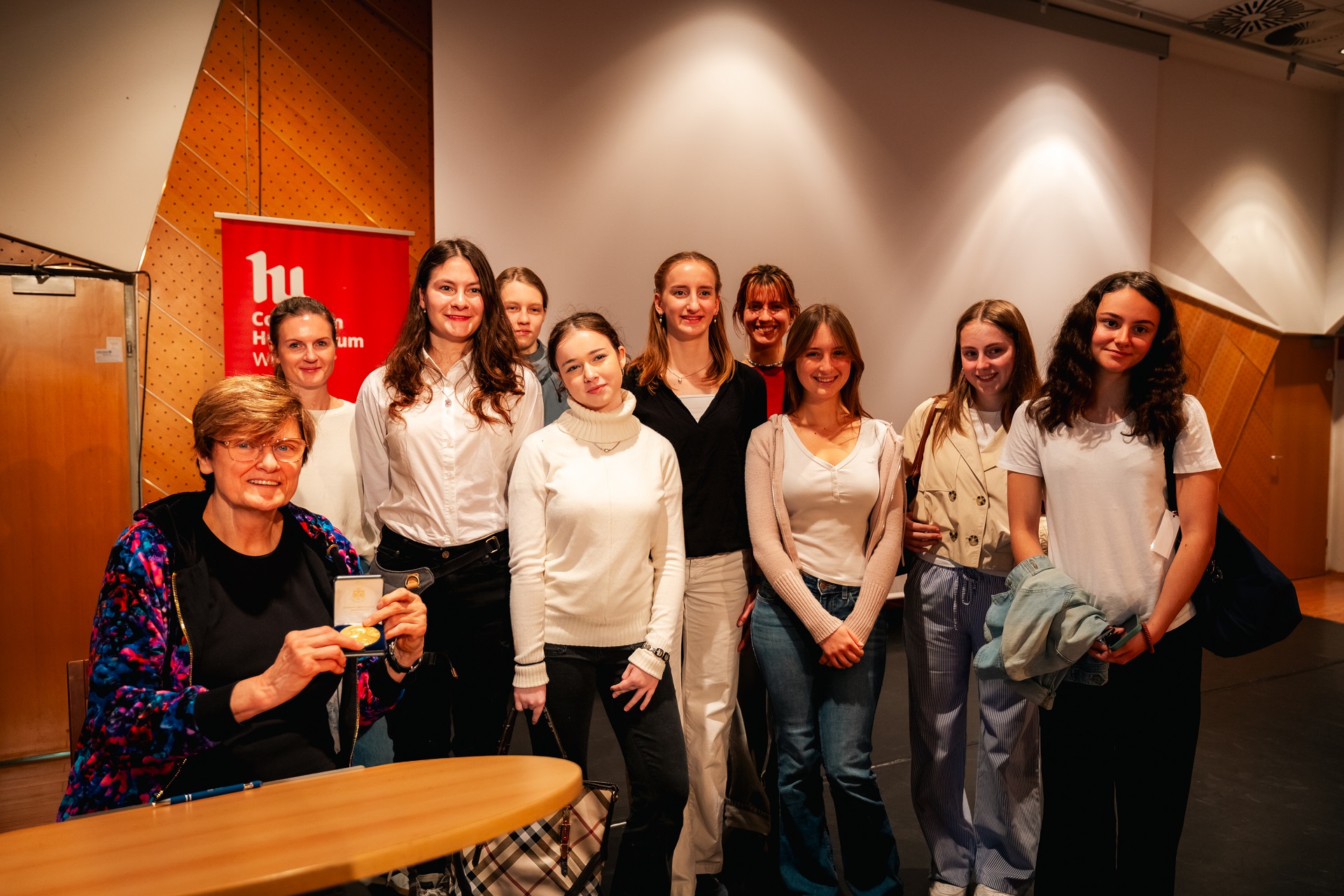
Katalin Karikó Inspires Students in Vienna with Insights into Well-Being
On Tuesday, May 20, 2025, Nobel Laureate Katalin Karikó spoke at the Collegium Hungaricum in Vienna, addressing Austrian high school students and their peers from Hungary. In her presentation, the renowned biochemist emphasized the importance of maintaining both physical and mental well-being. She shared personal reflections from her life, recalling how her fascination with nature – especially with plants – first took root in childhood, gradually growing to include chemistry, biology, and geography, and inspiring her to create detailed illustrations of living organisms.
Titled My Winding Road as a Biologist, Nobel Prize-winning scientist Katalin Karikó delivered an inspiring lecture to a group of high school students gathered at the Collegium Hungaricum in Vienna. Just a day earlier, on May 19, the world-renowned biochemist had received her twentieth honorary doctorate and was awarded the prestigious Semmelweis Medal by the Medical University of Vienna, where she captivated audiences with exciting lectures.
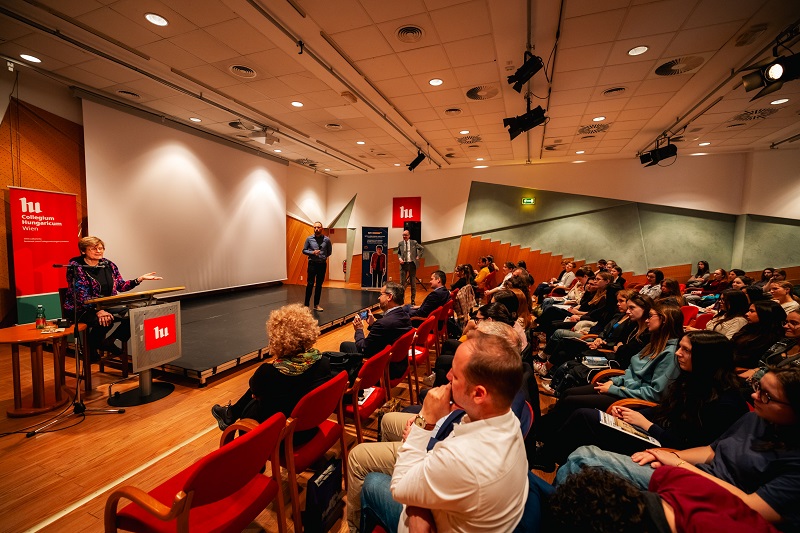
Following her engagements with doctors and medical students in Vienna, world-renowned mRNA researcher Katalin Karikó met with Austrian high school students on May 20, 2025.
Photo: István Sahin-Tóth
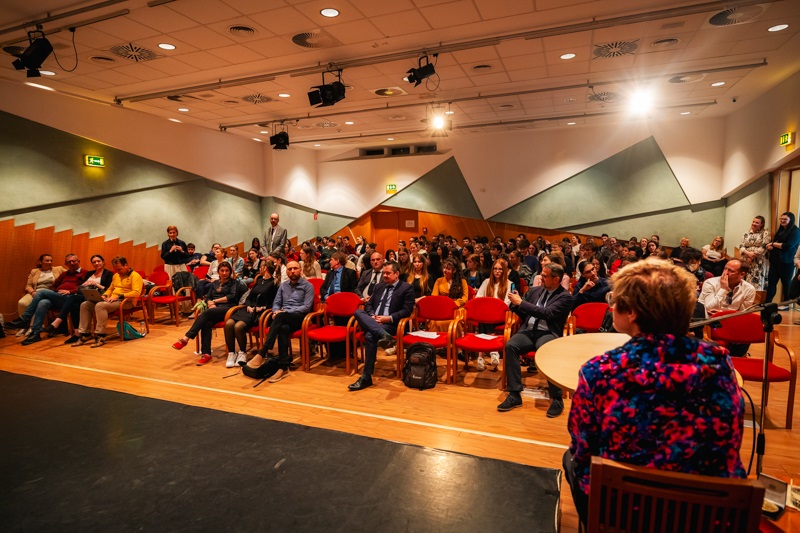
The exceptional event at the Collegium Hungaricum was attended by a student group from Móricz Zsigmond High School in Kisújszállás, Hungary, along with several students from the Báthory István Practice High School and Elementary School of the University of Szeged, recognized for their outstanding achievements in academic competitions.
Photo: István Sahin-Tóth
The mission of the Collegium Hungaricum network, founded by Kuno Klebelsberg, is to showcase and promote Hungarian cultural and scientific achievements.
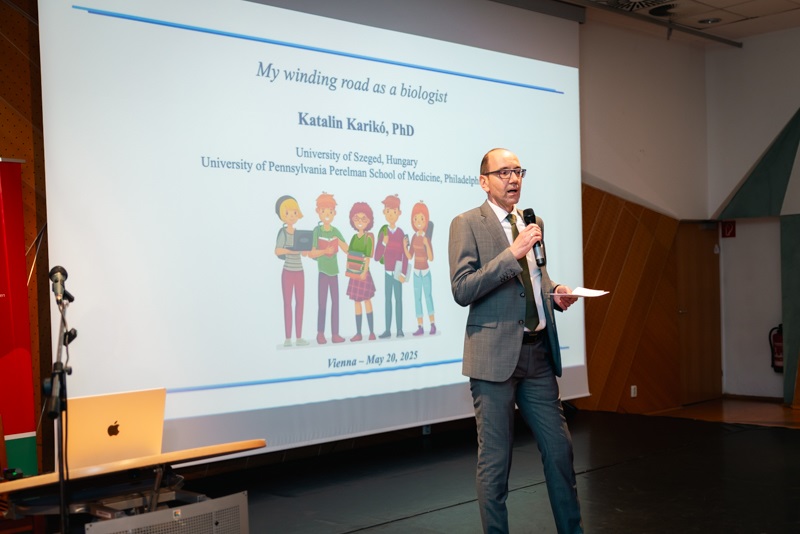
Márton Méhes, Director of the Collegium Hungaricum, welcomed students from Vienna, Kisújszállás, and Szeged, who had gathered to hear Nobel Laureate Katalin Karikó share reflections on her life and career in science.
Photo: István Sahin-Tóth
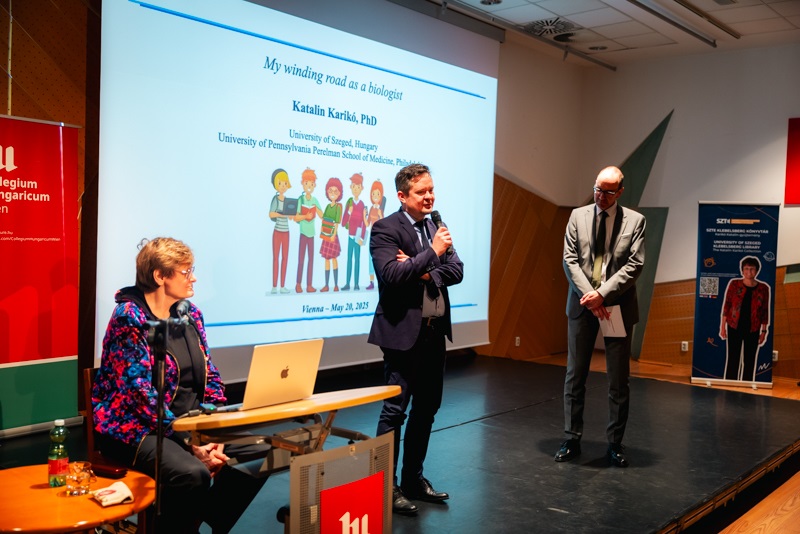
The life and career of Katalin Karikó, Nobel Prize-winning professor at the University of Szeged, was outlined by Attila Kiss, Associate Professor at the Medical University of Vienna and alumnus of SZTE.
Photo: István Sahin-Tóth
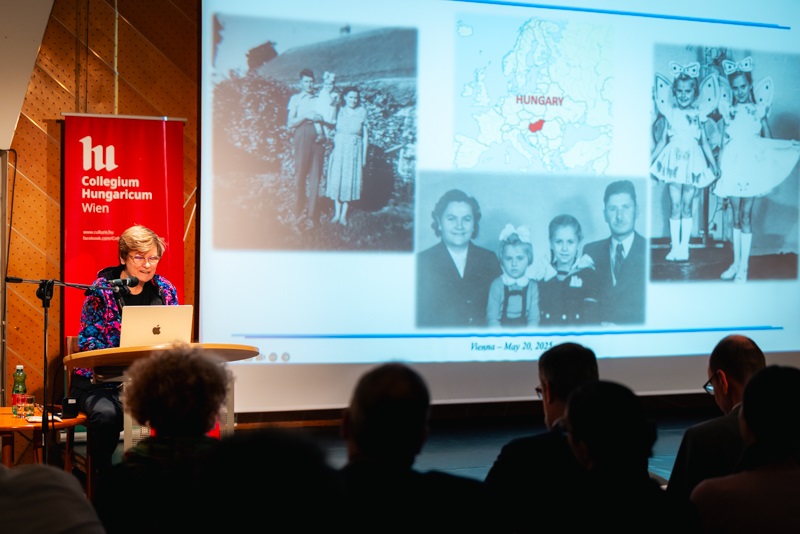
Childhood experiences and the example set by her parents played a formative role in shaping Katalin Karikó’s life and career.
Photo: István Sahin-Tóth
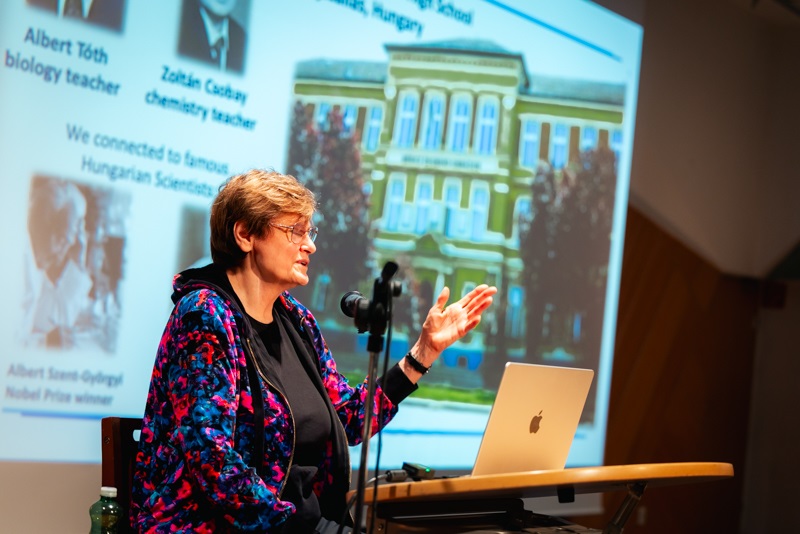
Katalin Karikó recalled a memorable episode from her high school years in Kisújszállás, when members of the Biology Study Club at Móricz Zsigmond High School decided to write letters to scientists. Since they had not yet learned English, they limited their choices to researchers who spoke Hungarian. In the end, they chose two of Hungary’s most renowned scientists: Albert Szent-Györgyi and János Selye.
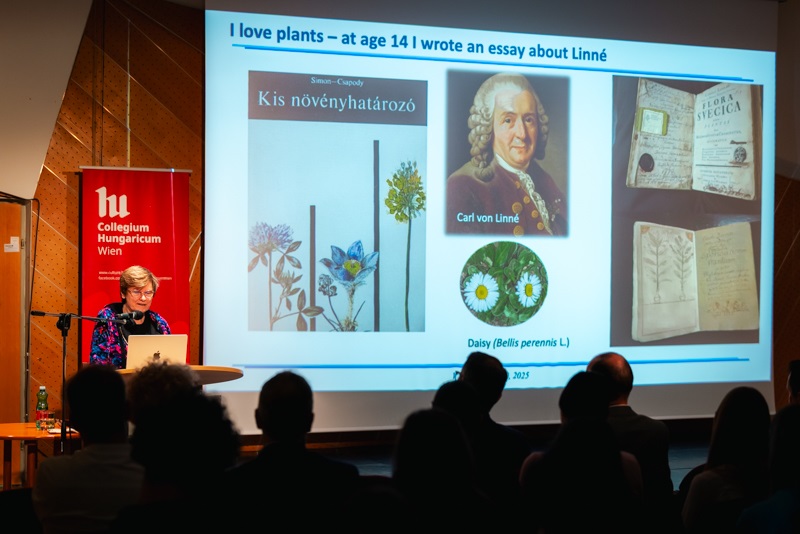
Drawing from her own experience, Katalin Karikó noted that a student’s interests can begin to take shape at a young age, often influencing their future career path. One sign of this was her first essay, written at the age of 14, in which she chose Carl von Linné as her subject – a clear indication of her fascination with the natural sciences.
Professor Karikó not only shared anecdotes from her school years in Kisújszállás, but also showed the students certificates she had earned for her achievements in academic competitions at the city, county, and national levels. She also revealed that she remains grateful to the high school teacher who once threatened to block her admission to the University of Szeged – an incident that, in hindsight, motivated her to aim higher and study even more diligently.
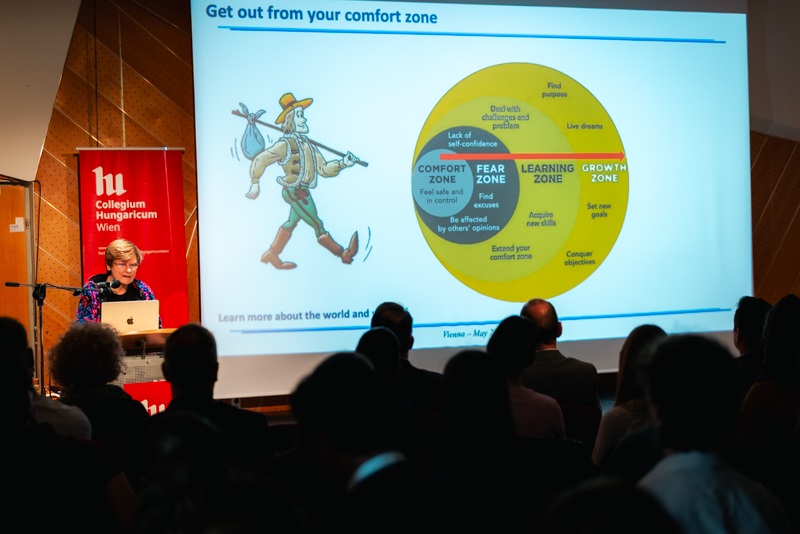
One of Katalin Karikó’s key pieces of advice – ‘Get out of your comfort zone!’ – echoes the courage of a young hero embarking on an epic quest.
Photo: István Sahin-Tóth
In response to a thoughtful question, Katalin Karikó stated that she did not personally experience discrimination as a woman; in fact, many of her supporters throughout her career were men. She also emphasized the importance of choosing the right partner, noting that her husband provided her with tremendous support throughout her life.
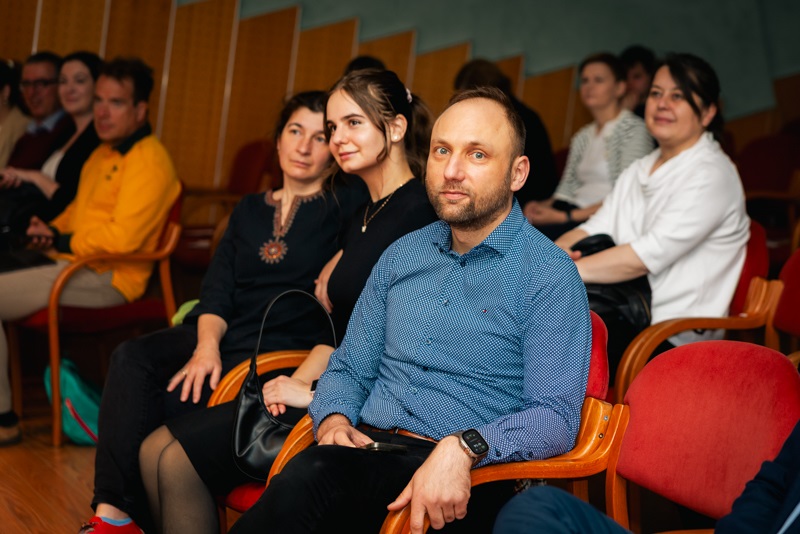
Researcher and physician Gábor Tamás Szabó, originally from Kisújszállás and currently working alongside Katalin Karikó at BioNTech, also took part in the Q&A session.
Photo: István Sahin-Tóth
While stressing the vital importance of making time for family, Professor Karikó noted that pursuing a career in research often requires sacrificing the ideal balance between work and personal life.
A delegation from the University of Szeged, headed by Prof. Dr. Péter Zakar, Vice-Rector for International and Public Relations, also participated in the event held at the Collegium Hungaricum. Their involvement underscored the university’s commitment to fostering academic collaboration and cultural exchange.
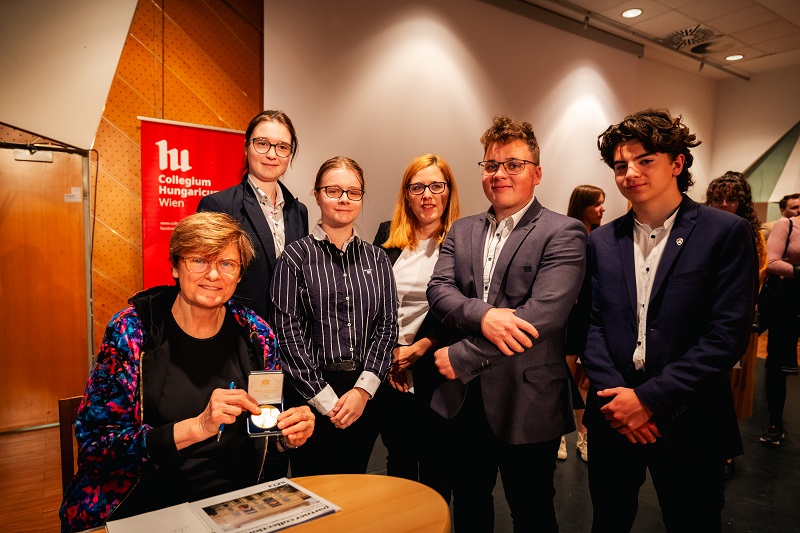
Katalin Karikó also showed the students from Szeged attending her lecture in Vienna an authentic replica of her Nobel Prize.
Photo: István Sahin-Tóth
Katalin Karikó underscored the crucial responsibility scientists have to convey their research and its benefits in a clear, accessible manner that resonates with the general public. She also emphasized the vital role the media must play in facilitating this connection, ensuring that scientific progress is effectively communicated and understood.
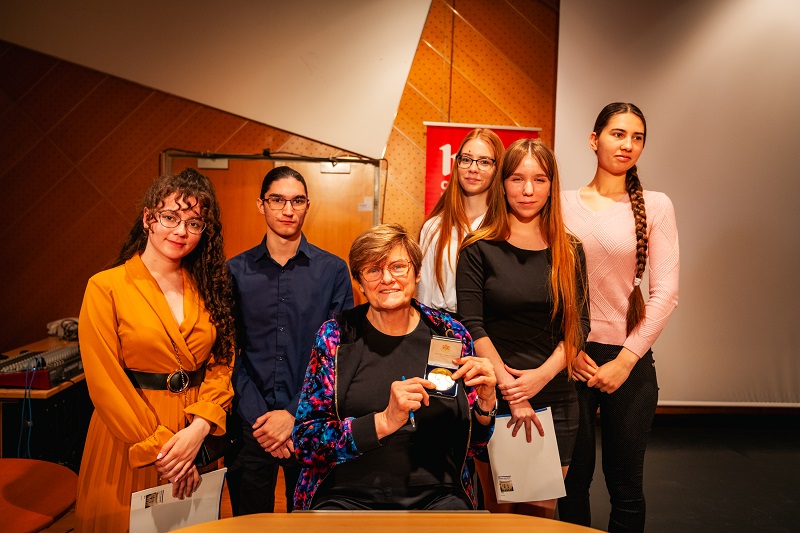
Nobel Laureate Katalin Karikó took time after her lecture at the Collegium Hungaricum in Vienna to engage in conversations with current students from her beloved high school in Kisújszállás, and pose for photographs with them.
Photo: István Sahin-Tóth
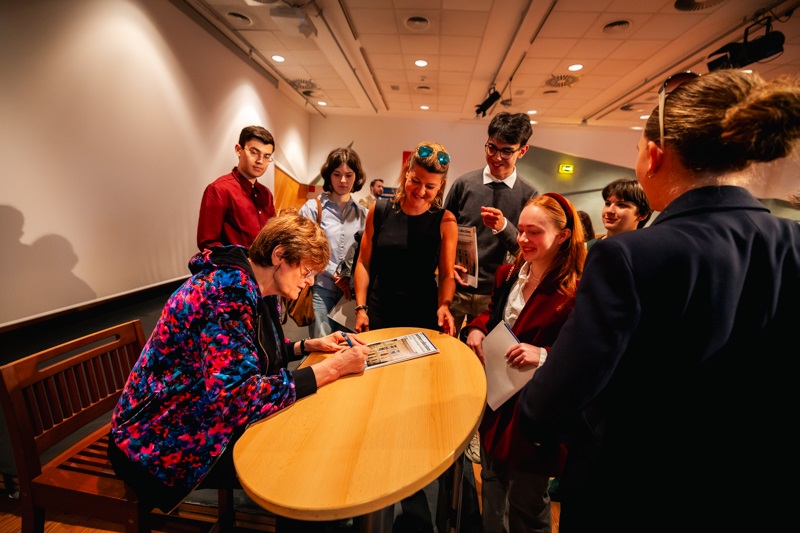
Professor Karikó’s lecture, followed by an extensive question-and-answer session, concluded with book signing at the Collegium Hungaricum in Vienna.
Photo: István Sahin-Tóth
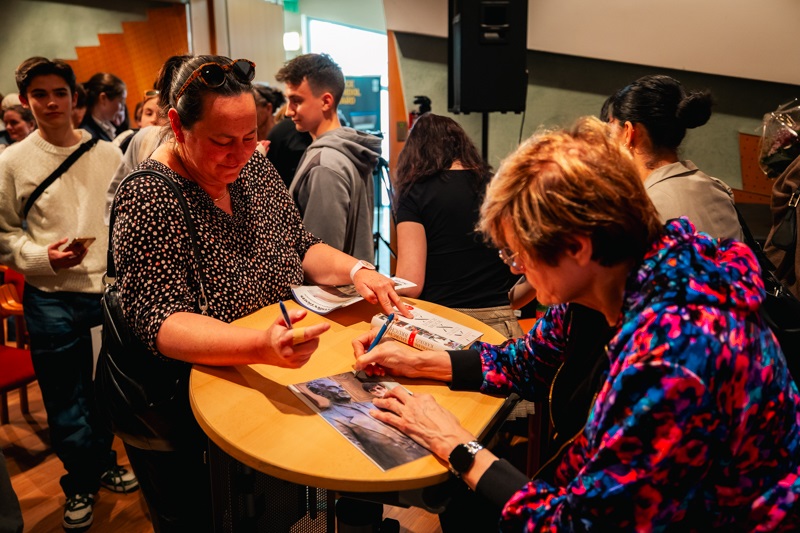
Katalin Karikó gifted a copy of her book “Breaking Through: My Life and Science” –now also available in German – to the library and student body of each school invited to the event hosted by the Collegium Hungaricum.
Photo: István Sahin-Tóth
Katalin Karikó’s scientific achievements have garnered international recognition in the form of numerous awards, honorary doctorates, and memberships in prestigious academic and scientific societies. A curated selection of over one hundred of her honors is currently featured at the Collegium Hungaricum in Vienna, in an exhibition organized by the University of Szeged. The exhibition features press and artifact photographs presented on roll-ups and display panels, complemented by brief descriptions and QR codes linking to articles in both Hungarian and English, providing visitors with deeper context and educational insights.
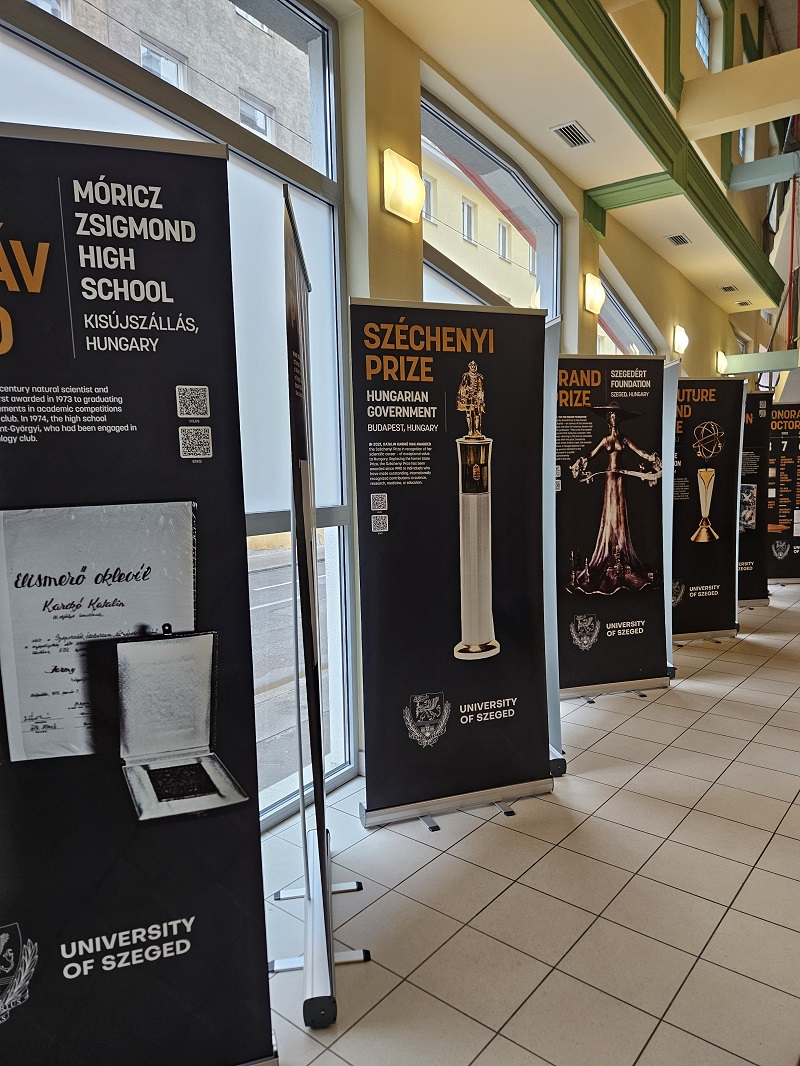
The roll-up and photo exhibition showcasing Katalin Karikó’s honors will be on display at the Collegium Hungaricum in Vienna until the end of May.
Photo: I.Ú.
Source: MTI News Agency, SZTEinfo
Photo: István Sahin-Tóth
Feature photo: At a meeting held at the Collegium Hungaricum in Vienna, Katalin Karikó showed an authentic replica of her Nobel Prize to Austrian and Hungarian students.
Photo: István Sahin-Tóth





